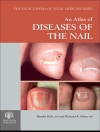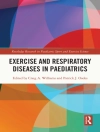Vertigo and Dizziness: Common Complaints, Second Edition revises and updates the first edition to reflect the advances that have taken place in this field.
Valid epidemiological studies are now available on the prevalence and incidence of these illnesses. There have been improvements in diagnostic criteria and important new principles in the treatment of vertigo and balance disorders are outlined for use in clinical practice, supported by video examples. Practitioners are also given access to the wealth of new, scientifically interesting findings on the pathophysiology, etiology, signs and symptoms and current treatment of peripheral and central vestibular disorders as well as somatoform vertigo, summarised in concise and accessible form.
Written by experts in the field, Vertigo and Dizziness: Common Complaints, Second Edition is a practical guide for physicians of different specializations who treat patients with vertigo including neurologists, ENT specialists, neuro-otologists, and neuro-ophthalmology and ophthalmology specialists as well as general medicine practitioners.
Зміст
Introductory Remarks.- Patient history.- Neuro-ophthalmological and Neuro-otological.- Laboratory Examinations and Imaging.- General Principles of Therapy.- 2. Peripheral Vestibular Forms of Vertigo.- Benign Paroxysmal Positioning Vertigo.- Vestibular Neuritis (Acute Partial Unilateral Vestibular Deficit).- Menière’s Disease.- Vestibular Paroxysmia.- Bilateral Vestibulopathy.- Perilymph Fistulas.- 3. Central Vestibular Forms of Vertigo.- Central Vestibular Syndromes.- Vestibular Migraine / Migraine of the Basilar Type.- 4. Traumatic Forms of Vertigo.- Traumatic Peripheral Vestibular forms of Vertigo.- Traumatic Central Vestibular Forms of Vertigo.- Traumatic Cervicogenic Vertigo.- Post-traumatic Psychogenic Vertigo.- 5. Somatoform Vertigo and Dizziness Syndromes.- Overview of the somatoform vertigo and dizziness syndromes.- Phobic Postural Vertigo.- 6. Various Vertigo Syndromes.- Vertigo in Childhood and Hereditary Vertigo Syndromes.- Drug-induced Vertigo.- Cervicogenic Vertigo.- Motion Sickness.- Height Vertigo and Acrophobia.
Про автора
Thomas Brandt, MD, FRCP
German Center for Vertigo and Balance Disorders, University of Munich, Germany
Marianne Dieterich, MD
Department of Neurology and German Center for Vertigo and Balance Disorders, Ludwig-Maximilians-University Munich, Germany
Michael Strupp, MD
Department of Neurology and German Center for Vertigo and Balance Disorders, University Hospital Munich, Germany












